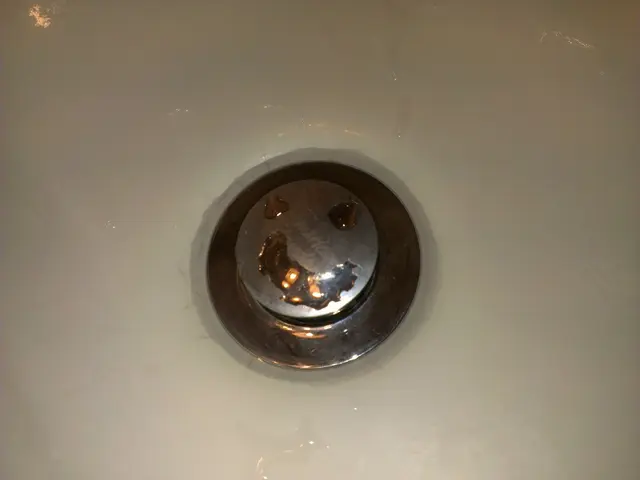Frequency of Refrigerator Coil Cleaning for Energy and Cost Savings
Turning Down the Energy Bill: A Simple Refrigerator Maintenance Hack
Keeping your home appliances in top shape and reducing energy consumption is a common goal for many households. One lesser-known way to cut costs? Cleaning your refrigerator coils. These unsung heroes are responsible for keeping your fridge nice and chill, but when they're clogged with dust and grime, they can jack up your energy bill.
To maintain the optimal cooling temperatures for your fridge and minimize energy expenses, it's essential to clean your coils periodically. Wondering how often to give them a good scrub? Here's the lowdown.
- Dusting Off Your Refrigerator 101: Refrigerator coils basically act as a radiator, releasing the heat pulled from inside your fridge into the room. When they're covered in dust and other contaminants, it's like you've created a blanket for that radiator, impairing its ability to shed heat effectively.
Over time, these components become breeding grounds for dust, pet hair, and all sorts of crud that can hinder their performance. The result? An expensive energy bill.
"I've seen refrigerators where the coils were so caked in pet hair that the appliance struggled to cool at all," says Dennis Godynuk, the Lead Appliance Expert at Comfort Appliance Repair in Tennessee. "Once those coils were clear, the fridge ran quietly and used noticeably less electricity."
Wasted Energy and Other Hazards
Dirty coils not only squander energy by causing your fridge to labor harder and longer, but they can also pose other risks, particularly with the compressor. "Regular maintenance helps prevent the compressor from burning out and can save you hundreds in repairs or even a full replacement down the line," advises Godynuk.
On top of the possibility of your compressor overheating and kicking the bucket prematurely, dirty coils can also lead to higher temperatures inside the fridge, which can cause food spoilage. Some warning signs indicating it's time for a cleanup include:
- Uneven temperatures or poor cooling performance
- High energy bills
- Loud noises
- A fridge that's constantly running
Clean Coils for a Cool Fridge
So, how frequently should you get your coils spick-and-span? According to Godynuk, homeowners who don't have shedding pets or an overly dusty living situation should aim to clean their coils once a year. If you're dealing with pet hair or dust bunnies galore, though, a twice-a-year cleaning might be in order.
If you notice your home accumulating dust at an alarming rate, you might want to clean your coils more frequently to ward off blockages.
Seasonal Cleaning Tips
If you're thinking about adding this cleaning task to your to-do list, Godynuk suggests scheduling it for your spring cleaning and fall cleaning checklists. "I know someone who cleans her coils each spring and fall-she has two Golden Retrievers in her home-and she's never had a compressor issue."
Cleaning your coils before the summer heat hits can also help prevent your fridge from overheating even more due to blocked coils during those sticky summer months.
When to Call a Pro
While cleaning your refrigerator coils is a fairly straightforward task you can take care of yourself, there are situations where reaching out to a professional might be a smart move.
"Some refrigerators have hidden coils behind panels or down underneath, which can be tricky to reach without a bit of mechanical know-how," Godynuk explains. "If the coils feel out of reach or you're simply pressed for time, it's wise to call a professional."
If you don't notice any improvement in the performance of your fridge after cleaning the coils yourself, or if you spot signs of rodents or pests near the coils, it's a good sign you should bring in the big guns.
Fast Facts:
- Failing to clean your refrigerator coils can result in higher energy bills, increased compressor strain, food spoilage, and other issues.
- Most household should clean their coils once a year, but if you have pets that shed or live in a dusty environment, aim for a twice-a-year cleaning.
- Cleaning your coils before summer helps keep your fridge functioning properly during those hot, sticky months.
- Hire a professional if the coils are hidden behind panels or you're having trouble with the appliance's performance.
Sources:
- [1] Berkely, T. (2021, February 17). How to Clean Your Refrigerator Coils: Save Energy and Keep Food Fresh. Retrieved from https://wholesale.appliancesconnection.com/blog/how-to-clean-your-refrigerator-coils/
- [2] Amo, K. (2021, September 12). How to Clean Your Refrigerator Coils: Save Money on Your Electric Bill. Retrieved from https://www.thespruceeats.com/how-to-clean-refrigerator-coils-3258683
- [3] St. Clair, T. (n.d.). Refrigerator Coil Cleaning: Why It's Important and How to Do It. Retrieved from https://servicemagic.com/home-maintenance-services/refrigerator-coil-cleaning/
- [4] LaPorta, R. (2016, January 12). Cleaning Your Refrigerator Coils: Saving Energy, Preventing Trouble. Retrieved from https://www.angieslist.com/articles/cleaning-your-refrigerator-coils-saving-energy-preventing-trouble.htm
- [5] Wholesale Appliances Connection. (n.d.). How Often Should You Clean Your Refrigerator Coils? Retrieved from https://wholesale.appliancesconnection.com/how-often-should-you-clean-your-refrigerator-coils/
- Following the advice of Dennis Godynuk, the Lead Appliance Expert at Comfort Appliance Repair in Tennessee, cleaning your refrigerator coils can lead to lower energy bills and prolong the lifespan of your appliance by reducing compressor strain.
- Southern Living and Home-and-Garden magazines suggest incorporating refrigerator coil cleaning into your seasonal housekeeping routine, particularly during spring and fall cleaning, to keep your refrigerator running efficiently throughout warmer months when it's most needed.
- When it comes to professional housekeeping and lifestyle tips, Southern Living and Home-and-Garden magazines offer practical advice on various home-related topics, including home improvement, home-and-garden maintenance, and interior design.







